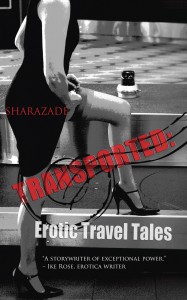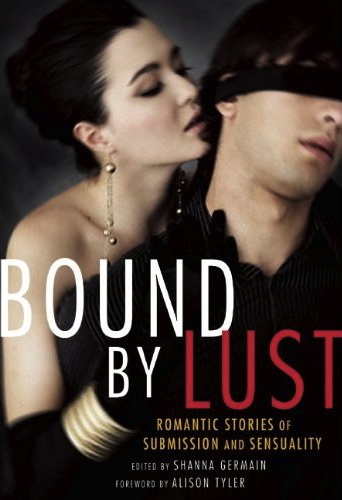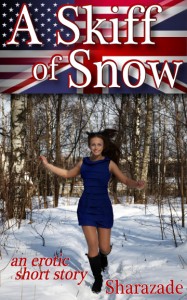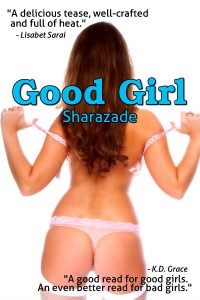When I meet people for the first time who ask what I do, and I say, “I’m an editor,” in most cases, their eyes glaze over, and I get some response like Huh or No kidding? Say, I wonder if there are any of those little sandwiches left on the buffet table, or occasionally Oh. You must be a good speller. (Actually, I’m a fantastic speller, but that’s probably a proofreader you’re thinking of.)
One reason most people aren’t quite sure what an editor does is that there are so many different kinds of editors. There are commissioning (or acquisitions) editors, who seek authors to write specific books the publisher has planned, or who simply are talented writers that the editor believes would produce good works.
There are development editors, who work with the author to shape the manuscript.
A series editor is the person who oversees an author team that works on a series, or a project with different components (a book, a DVD, a Web site).
A copy editor works with the manuscript before production to check grammar, spelling, and sometimes style. The proofreader generally checks the manuscript after it’s been typeset and covers formatting issues as well, such as page numbers and word breaks; and certainly some publishers do employ the same person as the copy editor and the proofreader.
And then we have the anthology editor, who collects and then selects stories for a collection on a particular theme or topic. Anthology editors are more common in erotic fiction perhaps than some other genres, though, because erotica lends itself so well to the short story format.
I’ve worked as a commissioning editor, a development editor, a series editor, and a copy editor — but never as an anthology editor. So rather than just guess what one does and how he/she does it, I decided to ask a real one. I chose M. Christian, because 1) he’s edited 20 successful anthologies, and 2) I could easily find his contact information. And of course also because 3) he answered promptly and politely and agreed with enthusiasm. I’d heard from some authors he’d worked with that he was “sweet,” and I wasn’t quite sure what that meant — doesn’t his photo look devilish?? but he really is. He closes his emails with “Hugs,” and called me “Sweetie” once, which quite tickled me coming from a man who’s just finished editing Best S/M Erotica Vol 3: Still More Extreme Stories of Still More Extreme Sex (which I’m reviewing here in my next post within the next week).
Here, then, is that interview, with information of interest to both the reader and the writer of quality erotica.
1. How does an edited volume come to be? That is, does a publisher choose a topic and solicit an editor, or does an editor dream up a project and approach a publisher?
Actually, it’s done both ways. Most of the time an editor will put together a brief (one page or so) proposal about the anthology — what it’s about, who might be invited, how it could be marketed, etc. – and then send it around to various publishers, hoping to find a home for it. Sometimes, though, a publisher will reach out to an editor they might know as a writer or who may have done other anthologies with them to do a project. That’s happened to me a few times, and it’s a wonderful compliment.
The trick to putting together a proposal is to not only make it sound exciting to a publisher but also to authors. I try to make my own different and rather (ahem) off the wall. That can be a bit of a trial to sell and fill, but it’s fun to do and, hopefully, for folks to read.
2. How do you find your authors? Where do you advertise?
There are a lot of places where editors and publishers post a brief statement saying what they are looking for, which is called a Call for Submissions. A good one, by the way, will have all the essentials a writer needs to send something in: what the anthology is about, what they don’t want, the deadline, the payment – that kind of stuff.
The best place, though, is a wonderful site called The Erotica Readers & Writers Association. The ERWA has, deservedly, become THE resource for erotica writing info: forums, articles, essays, news, and a lot more. I even wrote a column for them for many years, called Confessions of a Literary Streetwalker, about writing smut (coming out very soon as a book, btw). I cannot rave too much about them. [Shar’s note: I love that site too!]
3. How many submissions do you typically get, and of those, how many do you choose?
It really depends on the state of the writing world and what the book’s about: A general anthology will get a lot more than a very specific one, and if there are a lot of writers out there chugging away … well, then you get more. On the average, most of my erotica anthologies get anywhere from 25 to 100 submissions, but a few have gotten a lot more. When I edited the non-erotic anthologies Mammoth Book Of Tales Of The Road and Mammoth Book Of Future Cops (both with my pal Maxim Jakubowski) I got almost 500 submissions … gack! Needless to say it took me quite a while to get through them all.
4. Do you read submissions “blind,” or do you know who’s written each story?
I always know who is submitting what. Trying to read blind is really too much work and, well, kind of pointless: I don’t care if a writer is a ‘name’ or not, just if they can tell a good story. Another reason to know who is sending in what is to get an idea of how they conduct themselves, via their cover letter.
You see, unfortunately some writers treat anthology editors as a kind of enemy. Sure, some editors are jerks and should be avoided, but others are – like me – are writers as well and really strive to be conscientious to the people who submit to their books. I read and try my best to answer every email, and will always send out rejection letters – even though it might be painful to do it – rather than only talking to the ‘winners’ in the anthology selection game. So when someone approaches me with an attitude (making unrealistic demands, expecting to be cheated or plagiarized, etc.) I just roll my eyes and, while I will always read their stories, their arrogance will shadow their work – which is not a good thing.
5. Anthologies are built around a theme. Given that, though, do you strive for variety among the stories, or do you want them to be similar to each other?
Ideally I’d love it if each story approached the anthology’s theme uniquely because, let’s face it, the same story over and over again is boring. I often have the hard choice of picking one story over another because the two are far too similar to both be in the book. But I also try not to take stories that are too far away from the idea of the book – which would be jarring to the reader. It’s always a weird game, picking stories, as you’re always trying to balance style, story, length, and everything else. There’s also a point, though, when you simply have to let it all go and just get the thing finished. No book, especially an anthology, can ever be perfect for everyone.
6. Do you have an organizing principle for putting the accepted stories in order? That is, if a reader intended to read every story, would it make more sense to read them in the order you chose?
I follow a pretty simple formula when I put together book: short and punchy up front, longer towards the end, not too many short stories together or too many long ones. Ideally, I’d like a book that is always fresh and unique, where similar things don’t run after each other.
7. How are authors paid–a flat fee? A percentage of the royalties? How is the editor paid–a flat fee? A percentage of the royalties?
It really depends on the publisher, really, as they are the ones usually handling the legal stuff (creating the contracts and so forth) as well as how the money is paid out. There are normally two models: one, the publisher pays the editor a fee to put the book together and then pays the contributors themselves; or, two, the publisher gives the editor an amount that the editor then pays the writers from. It used to be rare that anthology writers got a piece of the royalty pie, but ebooks have changed all that and now it’s fairly common for books to offer some kind of royalty.
8. Do you prefer authors to write stories specifically for your anthology?
That’s an odd one. If the story hasn’t appeared anywhere, I don’t really care if it was written for me or not – though I really do love it when a writer has a good time writing a story for me.
9. Do you accept stories that have been previously published elsewhere? What are the pros/cons of doing that?
Sometimes the publisher is strict about not wanting reprints. Personally, though, I don’t mind it if the story is good. The con side of it is that sometimes a story might be published too many times – but that’s pretty rare. The pro side is that sometimes a book can be damned hard to fill and accepting reprints, especially if you have a tight deadline, can mean the difference between a really thin anthology and a nice, juicy, fat one.
10. Do you permit authors to re-published their stories elsewhere after the anthology has been published? What are the pros/cons of doing that?
Without getting too much into it, an anthology editor is usually only interested in using that one story that one time. It’s very, very rare for an editor, or even a publisher, to demand all rights. Frankly, I think writers should never – or rarely – sell the work to someone without having the opportunity to sell it elsewhere. There are simply too many opportunities to sell and resell something, and so get some much-needed income.
The trick is that when you send something, be sure to tell the editor that it’s been published before and where. Not doing that is a no-no than can get you, the editor, and even the publisher in trouble.
11. How much do you “edit” an author’s submission? Do you pretty much take it as it is, or do you make any requests for content changes?
Soap box time! Some editors feel that they have to be EDITORS (in all caps), meaning that they feel they have to put their fingers all over a book. I’m much more laid back: I prefer the writers to tell their own stories in their own ways. Rarely, though, I do tell a writer to change something, but it’s usually not very large and, if the writer does them, I will take the story. Some editors have the nasty habit of asking for changes and then still rejecting the story – which I feel is cruel. But then, again, I am a writer as well as an editor so I edit following the rule of “treat others as you’d like to be treated.”
12. I keep reading in various places that the short story is “dead.” Yet erotica anthologies seem very common. Is erotic writing an exception? Do novels outsell anthologies?
Short stories are definitely not dead, though we do seem to be in a time when there are fewer anthologies – but then that can change any day now. Shorts are great for writers because you can try out new and different things, and they are great for readers because you get to read all kinds of … well, new and different things. Anthos are very popular with erotica publishers as that variety can often excite their readers (and THERE’S an image) more than other formats.
As far as selling goes, that’s something I still don’t understand as some books sell really well and others just don’t. Believe me, if I DID understand it, I’d be a rich recluse instead of the poor recluse I am now ….
Right now I have one brand-spanking (ahem) new anthology out from Logical Lust called Best S/M Erotica Vol. 3, which is, kind of naturally, the third volume in a series I’ve been editing, erratically, for quite some time. It’s a wide-spectrum anthology covering all kinds of S/M tales. If I do say so myself it’s a great book, with stories from PM White, Sharon Wachsler, Kane, Jean Roberta, Jason Rubis, Shanna Germain, Cecilia Tan, Xan West, Craig J. Sorensen, Ralph Greco, Jr., Theda Hudson, Jerry Rosen, Jan Vander Laenen, Mykola Dementiuk, Jude Mason, Billierosie, and Oatmeal Girl.
Coming out very soon is another anthology, this time from Sizzler ebooks, called Sex in San Francisco, which is a celebration of kinky erotic fun in that legendary city. It has stories by Donna George Storey, PM White, Renatto Garcia, Adele Levin, Shanna Germain, Craig J. Sorensen, Theda Hudson, Jude Mason, Neve Black, Mykola Dementiuk, Jeremy Edwards, and Anna Reed and Lily Penza.
And here’s some great news: I just agreed to edit three new anthologies for Sizzler ebooks. I can’t tell you what they are about (yet) but keep your eyes on my site at www.mchristian.com or, of course, the The Erotica Readers & Writers Association site for the Calls for Submissions.
~ ~ ~
M.Christian is – among many things – an acknowledged master of erotica with more than 300 stories in such anthologies as Best American Erotica, Best Gay Erotica, Best Lesbian Erotica, Best Bisexual Erotica, Best Fetish Erotica, and many, many other anthologies, magazines, and Web sites.
He is the editor of 20 anthologies including the Best S/M Erotica series, The Burning Pen, Guilty Pleasures, The Mammoth Book of Future Cops, and The Mammoth Book of Tales of the Road (with Maxim Jakubowksi) and Confessions, Garden of Perverse, and Amazons (with Sage Vivant), as well as many others.
He is the author of the collections Dirty Words, Speaking Parts, The Bachelor Machine, Licks & Promises, Filthy, Love Without Gun Control, Rude Mechanicals, and Coming Together: M.Christian; and the novels Running Dry, The Very Bloody Marys, Me2, Brushes, and Painted Doll.






